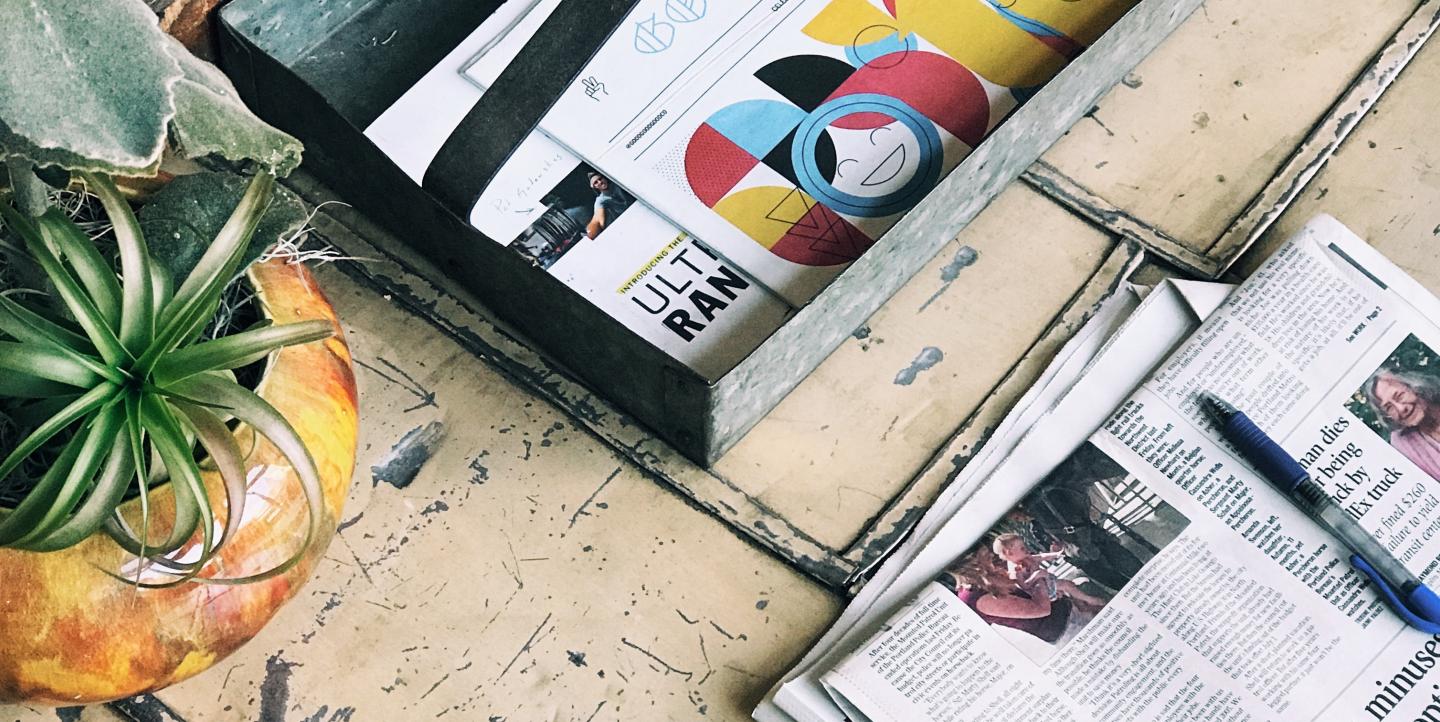In partnership with our parent organization, the International Center for Journalists (ICFJ), IJNet is connecting journalists with health experts and newsroom leaders through a webinar series on COVID-19. The series is part of the ICFJ Global Health Crisis Reporting Forum.
This article is part of our online coverage of reporting on COVID-19. To see more resources, click here.
Facing a possible “extinction event” for independent media worldwide, journalists must work together globally to combat a triple threat of disinformation, government restrictions and economic calamity worsened by the COVID-19 pandemic, three top editors said during an ICFJ webinar Friday.
Maria Ressa, the founder of Rappler in the Philippines, said that although her outlet is in a comparatively secure financial position, many other news organizations globally are at risk of collapse. And the result could be that many citizens might not be able to count on independent media to continue to provide factual information free of government control once the shock waves of the pandemic have subsided.
“This is an extinction event,” she said. “Not just for journalists, who determine the quality of a participative democracy. It’s also an extinction for a way of life that was pre-COVID-19.”
Sponsored by ICFJ’s Global Health Crisis Reporting Forum, the webinar included Ressa, Branko Brkic, founder of the Daily Maverick in South Africa, and Ritu Kapur, founder of The Quint in India. (Ressa received ICFJ’s Knight International Journalism Award in 2018.) All of the panelists run digital-only news outlets. The session was moderated by ICFJ’s Global Director of Research Julie Posetti.
Here are some highlights.
On combating false information
Brkic: Misinformation and disinformation were already rampant before COVID-19 struck, but now, more than ever, combating falsehoods is a life-or-death matter.
“Whoever is spreading fake news is a horrible human being. Whoever is spreading fake news in this environment, I hope they burn in hell. The level of immorality of that is horrible to me.”
Kapur: “What is happening in this country (India) is that the communal aspect is now creeping into the fake news. So the fake news machinery is also … saying that the Muslim community is trying to spread the infection.”
“We’ve repurposed our team to focus on FAQs, putting out answers so people don’t fall for the first thing they see. Another team focused on solutions journalism...We’ve beefed up fact-checking. I was thinking that when we emerge from this we’ll be that much stronger as a team on fact-checking. That’s a silver lining.”
Ressa also cited a “silver lining” in the Philippines, where disinformation — often directed at Ressa and Rappler — has been rampant. Now people stuck in their homes are banding together to expose the purveyors of disinformation, she said. “This is also where we'll see the solutions,” she said. “Those real world communities are going to be forced to work together and demand real world solutions from their leaders.”
[Read more: Don’t just debunk misinformation: 4 tips for navigating the COVID-19 infodemic]
On crackdowns on freedom of expression ostensibly to fight misinformation
Kapur: She notes that in India, the Narendra Modi government has passed a law that criminalizes media organizations that fail to publish the government’s officially approved version of news about the pandemic.
“The government is putting out data which is a reflection of very poor testing. Journalists know from the ground, from asking our networks, that the numbers are much higher. … But we have to be very careful in how we put that out. Any data that is conflicting with government data can be considered fake news.”
Ressa had been scheduled to appear in court on Friday in one of the Rodrigo Duterte government’s cases against her. That trial, which could result in Ressa being sentenced to 12 years in prison, has been postponed. She is currently facing multiple legal cases which could see her jailed for 80 plus years in total. She said the pandemic has led to a dual reaction in the public regarding threats to freedom of expression. On one hand, many people are too concerned with survival to worry about those threats — more because they can’t get food than because they could get COVID-19, she said.
But she added, many people are outraged about the Duterte government’s abuses. “Two days ago when Duterte threatened to kill violators of the lockdown, the hashtag ‘OustDuterte’ trended No. 1 in the Philippines and then went overnight and trended No. 1 globally. That would have been unheard of before this happened.”
[Read more: Key quotes on the origin of COVID-19 and self-protection measures]
On the economic crisis facing the news media
Brkic: “Daily Maverick was kind of made for a crisis like this. For 10 years we’ve been suffering financially. As a result we couldn’t afford offices. So we worked from our homes for two years.”
Kapur: “In a country [India] where independent or critical media has been under threat already…. we have to become slightly more practical and unemotional about how we’re going to survive. What are the costs we can do without, how do we remodel ourselves depending on how this plays out?”
Funding options available to media in richer countries will not be available in the Global South, Kapur said, noting that the Indian government is not likely to financially support media organizations by buying ads (as the Canadian government is doing), and philanthropy doesn’t bring in enough funding.
Ressa said that the challenge for independent media now will be “flattening the curve of expenses” as epidemiologists urge flattening the curve for infections. Media organizations will not be receiving much revenue during a lockdown, so they have to find a way to keep money flowing.
Tech companies that are now receiving the vast majority of advertising revenue will have to take a more comprehensive approach to helping independent media, she noted.
“Social media platforms do care about the facts. … Lies kill. All of a sudden we are all in the same boat. We are all working from home and we need facts. So strangely enough, I am optimistic.”
On the importance of quality journalism
Brkic: “From a journalistic standpoint, this is our finest hour.” While the media organizations are constrained from sending journalists into the field to keep them from catching the virus, they are all publishing a great deal of high-quality content, some of it generated by users.
“We cannot lose the clarity of our vision and dedication to our mission. These are the moments where it really counts. Only if we do that, we have a chance to actually convince our societies that we need to exist for them.”
The Global Health Crisis Reporting Forum from ICFJ and IJNet connects journalists covering the novel coronavirus pandemic with leading health experts, resources and each other. Learn more and join the Forum through its Facebook group. Journalists can use these insights and quotes in their stories.
Main image CC-licensed by Unsplash via Branden Harvey.


